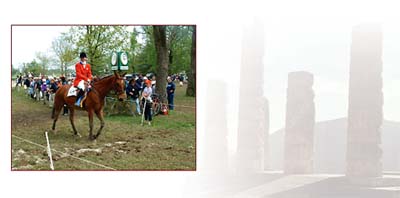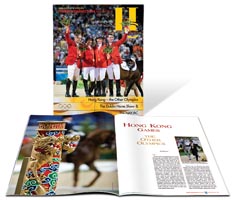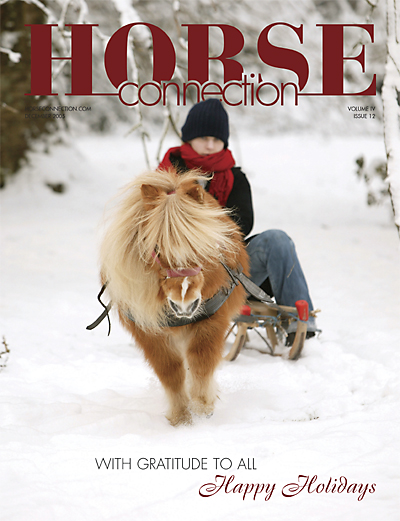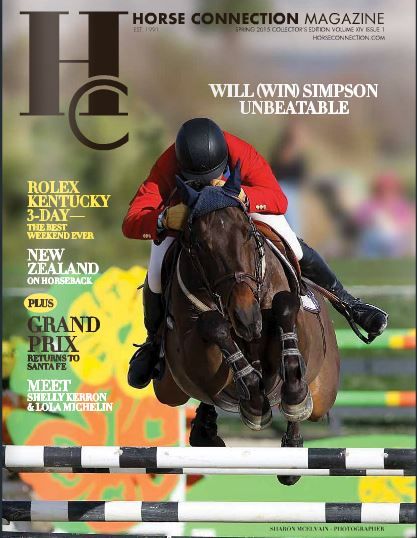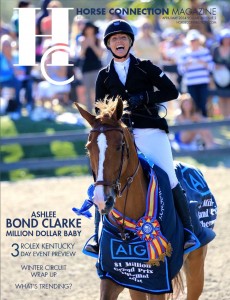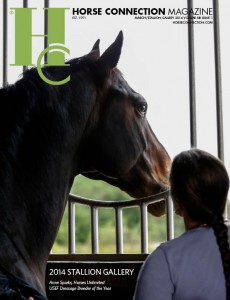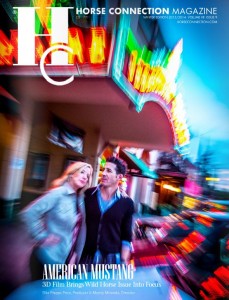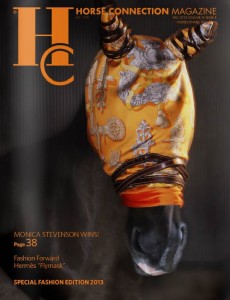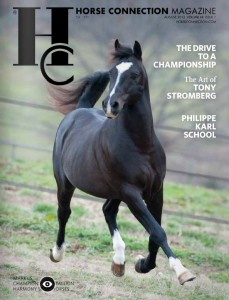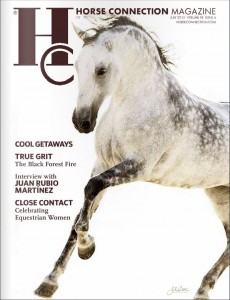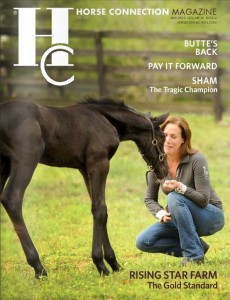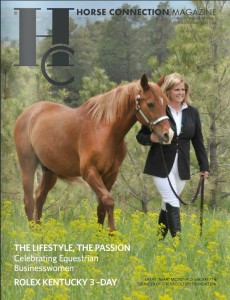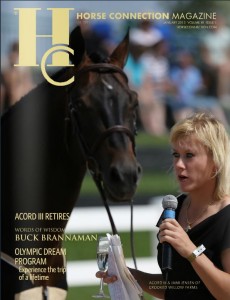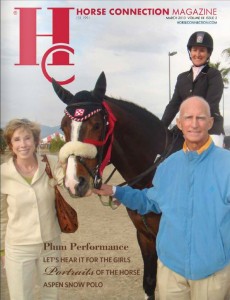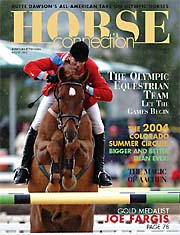
The 2004 Olympic Equestrian Team Ready to take their place on the world stage – August 2004
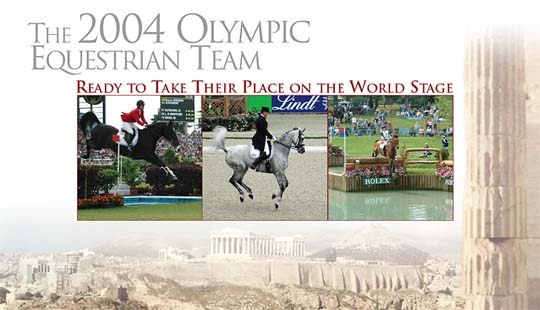
geoff young
If you ascribe to the adage, “age before beauty,” then perhaps the United States Equestrian Team should lead this country’s athletes into the Olympic stadium for the opening ceremonies in Athens. Personally, I believe that age and beauty are good descriptions of the equestrian team that will compete in the 2004 Olympic Games. For starters, age equates with experience as is the case with forty-eight year-old dressage rider, Robert Dover, who will be entering his sixth Olympics, the most of any athlete representing the U.S. And fellow dressage rider, Debbie McDonald, a first-time Olympian, will turn fifty on August 27. In fact, when the American equestrians march into the Olympic stadium it may be easy to mistake them for coaches or chaperones. After all, the average age of the thirteen-member squad is thirty-eight, and many of them compete on horses nearly as old as U.S. gymnasts Courtney McCool and Carly Patterson, both of whom are sixteen. Age is but one of the stark differences between equestrian sport and all of the other sports. In our sport, horses are the great equalizer and that is why ours is the only sport where men and women compete against each other. Besides the age (experience) factor, the sheer beauty of our Olympic horses justifies the phrase “age and beauty” when describing this team. I don’t wish to trivialize the equestrian team with this light-hearted analogy, because this team is determined, talented, and poised to make a serious run at the medals in Athens. In fact, this team is good enough to win more medals than in previous Olympics. It won’t be easy, but changes have been made in the way we train and prepare our equestrian team, and the results will tell us if we are on the right track back to prominence in the world of equestrian sport.
What Have We Done to Prepare the Team For Success Over the Past Four Years?
The performances of the U.S. Teams have consistently improved since the Sydney Olympic Games. The steady increase in the World Rankings is a direct result of the USEF’s commitment to acquire the best coaches and to increase the USA’s exposure at European competitions. The Germans still dominate the equestrian sports, except for three-day-eventing, due to the fact that at any given show they are competing in their backyard against the best riders and horses in Europe week in and week out. American equestrians have been at a disadvantage in the level of competition here in the states, but that is changing.
Show Jumper, Peter Wylde, and Dressage rider, Lisa Wilcox, have been living and training abroad. Their performance at the 2002 World Equestrian Games showed that they are approaching the top tier in their disciplines when Wylde won the individual Bronze, the first individual World Championship medal by a U.S. show jumper since Michael Matz won the Bronze in 1978. Wilcox and teammate, Debbie McDonald, turned in this country’s best performance in history. McDonald and Brentina finished fourth by the slimmest of margins and Wilcox, riding Relevant, was right behind in fifth. Never before has the U.S. placed two riders in the top five in a dressage World Championship.
In addition to more European experience, the USEF has recognized that in order to improve our equestrian teams we need to nurture and provide more opportunity for our young up-and-coming equestrian riders. This is being accomplished through the Developing Rider programs.
We still have much work to do to close the gap between the Europeans, especially the Germans, and us, but we are heading in the right direction, and with the recent success at the WEG and other international competitions, resurgence in U.S. equestrian prominence is right around the corner.
Can The U.S. Win Silver In Dressage?
Although Germany remains on the top of the World Ranking List, and is still a dominant force having won Team Gold at every Olympics since 1976, there is real optimism for the U.S.’s chance to challenge that supremacy. For the first time, we have two U.S. riders in the top five on the Dressage World Ranking List. Riders Lisa Wilcox and Debbie McDonald are ranked second and fourth, respectively, in the current world ranking. Remarkably, McDonald became the first U.S. rider to win the World Cup Championship. Guenter Seidel finished third and George Williams finished fifth. Never before has the U.S. been allowed to send three riders to the Dressage World Cup Final and it was incredible that all three riders placed in the top five.
Germany, the birthplace of Dressage, continues to dominate the world rankings. However, German superstar Isabel Werth, a gold medallist in 1996 and a silver medallist in 2000, retired her long-time mount after the Sydney Games, and the Netherlands, always right behind Germany with their superstar, Anky Van Grunsven, the gold medal winner in 2000, have a similar situation with Anky retiring her top mount following Sydney. For many years these two combinations played a huge role in the success of Germany and the Netherlands, and they will again be tough to beat. Nadine Capellman and Ulla Salzgeber are the top ranked German riders. Ulla’s mount, Rusty, will be retiring after Athens.
There are several countries that will challenge for third place. Spain, the United States, and Denmark are currently very close to each other in the standings. Spain’s performance in Sydney in 2000 moved it up the rankings while Sweden dropped a bit. The goal for the U.S. is to remain in the top five with a focus on third. The real challenge will be to rise above third, bettering our finish in Sydney. Our current Olympic Dressage team has the strongest rider/horse combinations ever. The goal to win Team Silver at the 2002 WEG was accomplished, marking the team’s best finish to date at a Championship. In 2003, the dressage team placed second in the Nation’s Cup at CHIO Aachen, with two riders placing second and third individually.
The depth of U.S. Dressage is evident by the successes in the 2003 Pan American Games, the 2002 WEG, and the 2000 Sydney Olympics. The momentum is there and the U.S. should medal in Athens. Bronze would be nice, but a Team Silver Medal in Dressage is not out of the question. And there is a real chance that the U.S. could get an individual medal in Dressage, something that has not been done since 1932, when Hiram Tuttle took bronze at Los Angeles, making him the only American to win an individual medal in Dressage. It’s not a matter of “if” anymore, but “when.” A Bronze Medal in Athens would put the Dressage Team on cloud nine; however, I predict that the cloud will have a silver lining.
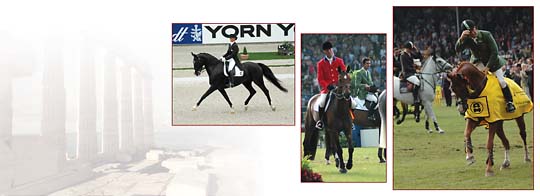
The Show Jumping Team Looks To Get Back On The Podium
After winning Olympic Team Gold in 1984, along with Joe Fargis’s individual Gold, Team Silver in 1988, with Greg Best’s individual Silver, and Team Silver again in 1996, the U.S. Show Jumping team will be looking to rebound from a disappointing sixth place finish in Sydney in 2000. The team seems ready to respond by winning the Team Gold at the 2003 Pan American Games.
In Show Jumping, any one of five or six nations can top the rankings. And, while Dressage scores are dependant upon subjective scoring to rank athletes, Show Jumping athletes just have to leave the rails up. Germany has won the Team Gold in Show Jumping the last two Olympics, and again is the team to beat. Since there were no head-to-head team championships with European nations in 2003, determining a 2003 world ranking is difficult. The 2002 World Rankings (World Equestrian Games Team Placing) had the United States in sixth place behind number one France, followed by Sweden, Belgium, Germany, and The Netherlands.
Germany, Ireland, France, the Netherlands, Switzerland, Sweden and to a lesser degree, Brazil, (which has riders who have been based in Europe for many years) are consistently successful because of their day in/day out exposure to competition at its best. In addition, these countries have ready access to the best young horses being produced by various sport horse programs in Germany, Holland, Ireland, and elsewhere in Europe. The U.S is making strides in getting their riders more European competition, and U.S. Show Jumper, Peter Wylde, has been living and competing in Europe, from his home base in Holland. The international experience seems to be paying off for Peter. He won the individual Bronze Medal at the 2002 World Equestrian Games. Wylde became the first American to compete in the final since 1986 when Conrad Homfeld won the Silver Medal. Peter’s mount, Fein Cera, was named “Best Horse” at the WEG. This pair will be ready to challenge at Athens.
We have several Olympic riders that should be counted on to do well. Chris Kappler made history twice in 2003 when on consecutive weekends he won the $200,000 Budweiser American Invitational and the AGA Show Jumping Championships, becoming the first rider ever to sweep these events back-to-back. Chris was a member of the Gold Medal winning team at the 2003 Pan American Games and won the individual silver. Beezie Madden is another member of that Gold Medal Team at the Pan Am Games, and she looked strong in winning the Olympic Selection Trials. McLain Ward is perhaps the most gifted rider on the U.S. Team but his horse, Sapphire, is young and inexperienced; yet, this horse and rider can put it all together and Sapphire has, at times, looked unbeatable. The American team is peaking at the right time and has been performing with great consistency in the Samsung Super League. In a strong showing, the U.S. team took second place, just one fence behind the Germans, in the Super League at Aachen, the Mecca of the show jumping world and perhaps one of the toughest jumping courses in the world.
While the Germans will be hard to beat, controversy has surrounded the team. American-born Meredith Michaels-Beerbaum, sister-in-law of four-time Olympic veteran and gold medal winner, Ludger Beerbaum, was poised to become the first woman to represent Germany in the Olympics. Meredith, one of the top riders in Germany, and a second-place finisher at the FEI World Cup Final in Milan, was considered a shoo-in for the Olympic team until her horse Shutterfly failed a drug test. The other team members have signed a petition in support of her and she has hired an attorney. This distraction might affect the German team; however, Ludger Beerbaum and Marcus Ehning are still the standouts in this competition along with Marcus Fuchs of Switzerland and Rodrigo Pessoa of Brazil. These riders will be our toughest competition in Athens.
With the brave and elegant Fein Cera, Peter Wylde has a chance to do well in Athens as does Bezzie Madden and Authentic. The dark horse, in my opinion, could be first time Olympian McLain Ward and Sapphire. These two are so close to pulling off something amazing, and I think that it will happen in Greece. And don’t count out Kappler and Royal Kaliber. Even though the horse sustained a strain to his left hind leg in competition July 4, it doesn’t appear to be serious and the pair should be ready. This team is good enough to medal in Athens. The only question is bronze or silver. Call me crazy, but I feel something special is going to happen; something like Team Gold and an individual medal as well.
It’s Hard To Be Humble: The Three-Day-Event Team Goes For Gold
The United States continues to flex it’s muscle as a major force in International Eventing. To date, the U.S.’s Kimberly Severson is ranked second in the FEI World Event Rider Rankings, just behind Great Britain’s William Fox-Pitt. Until recently, the U.S. had three riders in the top ten of the world rankings. Expect great things of our Eventing Team in Athens. They are coming off a World Championship victory in 2002, with most of the horses and riders that competed on that team competing in Athens. Veteran rider, Darren Chiacchia, and his awesome stallion, Windfall 2, won the individual gold medal at the Pan American Eventing Championships in 2003. Severson won the 2002 and 2004 Rolex Kentucky Three-Day-Event CCI**** and was a member of the Gold medal Team at the WEG. The Eventing Team’s only weakness might be in the show jumping phase under lights, as will be the case in Athens.
The International Federation no longer maintains a ranking list for nations; however, it would be safe to say that the United States, New Zealand, Great Britain, Australia, and France are the most competitive nations in Eventing. The U.S. is currently considered a top contender to win the Eventing Team Gold medal at the 2004 Olympic Games, having won Team Gold at WEG competing against these nations. France, Great Britain and Australia are our strongest competition, and Australia, winners of an unprecedented three consecutive Olympic Team Gold Medals, have received a great deal of national attention. This has had a positive impact on fundraising for the sport and attracted talented equestrian athletes to the sport of Eventing. Going into the Olympics, Australia has a great deal of momentum, and rider Phillip Dutton, who led his team to gold in Sydney, will try to repeat in Athens.
France has reorganized their coaching structure and funding of their team, and those changes are now paying off. At the 2002 World Equestrian Games they took home Team Silver with a team led by Jean Teulere who won the individual gold. They have been competing very successfully in international competition ever since.
Great Britain has been the center of Eventing since the sport began. Most of the top riders from around the world have lived and trained in the U.K. at some point in their careers, and with William Fox-Pitt ranked number one in the world, they will be a force to reckon with.
It will be a tough and demanding competition but the U.S. team can hold their own and will prevail in Athens. I believe Great Britain will take the bronze followed by Australia winning silver. That leaves the U.S with the Team Gold Medal, and Kim Severson winning the Individual Gold Medal. That in itself, would be a remarkable event.
Don’t Believe in Miracles, Just Believe
The 2004 United States Olympic Equestrian Team is as strong a team as we’ve ever fielded. With veteran riders and promising first-time Olympians, the U.S is ready to return to respectability in the international arena. With European countries having the opportunity to face top international competition every weekend at horse trials, and unlimited access to the top horses, we are still at a disadvantage. But the USEF recognizes this and has aggressively made changes to improve our international ranking and our interest in equestrian sport here at home. The one thing to remember is that our horses’ hearts are as big as their horses’ hearts and our athletes are as committed and talented as theirs. And the American spirit and grit that is known throughout the world will be there for all to see in Athens. And the mettle that our Olympic team shows the world will translate into the medals that they bring home. And there is something ageless and beautiful about that.
Introducing the 2004 U.S. Olympic Show Jumping Team
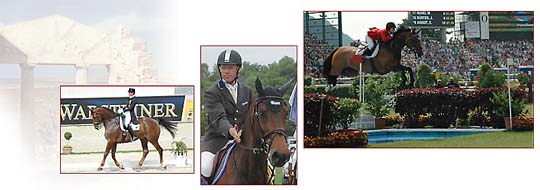
Beezie Patton Madden
Home: Cazenovia, NY
Born: November 20,1963
Horse: Authentic ( Dutch Warmblood gelding)
Beezie Madden kicked off 2003 with several wins at the Winter Equestrian Festival including a win in the $50,000 Idle Dice Classic and in the $100,000 Cosequin U.S. Open Jumper Championship. She was also on the U.S. team that won the Samsung Nation’s Cup. Madden then went on to help the U.S. win a team Gold Medal in the Pan American Games in Santo Domingo, Dominican Republic. In 2002, Beezie rode on the USET’s sixth place team at the World Equestrian Games in Jerez de la Frontera, Spain. In 2000, Madden won the Valkenswaard Grand Prix in The Netherlands. She beat Barcelona Olympic Gold Medalist, Germany’s Ludger Beerbaum, by 0.31 seconds in a four-horse jump-off, becoming only the second American to win a Pulsar Crown event. In 2001, she won the $25,000 Lexington Classic Grand Prix and took 3rd place in the Grand Prix of Aachen, Germany. Beezie was a recipient of a U.S. Equestrian Team (USET) grant to represent the U.S. on a 1997 European tour. Her outstanding 1997 season led to her winning the American Grand Prix Association Rider of the Year award and Dynamite being named AGA Horse of the Year. In 1989, she was named the United States Olympic Committee’s (USOC) Female Equestrian Athlete of the Year. Beezie finished first in the Olympic Selection Trials and won the $175,000 Cargill Grand Prix of the Unites States, held in conjunction with the final two trials.
Peter Wylde
Home: Maastracht, Holland
Born: July 30, 1965
Horse: Fein Cera (Holsteiner mare)
Peter Wylde has achieved international show jumping success highlighted by the individual Bronze Medal in the Show Jumping World Championships at the 2002 World Equestrian Games and double Silver Medals at the 1999 Pan American Games. His elegant mount Fein Cera was named Best Horse of the Games at the 2002 World Equestrian Games. A native of Medfield, Massachusetts, Wylde worked his way up in the junior rider ranks, and earned the United States’ highest junior honor, when he won the Rolex-Maclay National Equitation Championship at the National Horse Show in Madison Square Garden in 1982. Wylde has represented the U.S. Equestrian Team in four World Cup Finals. In 1999, Wylde was Co-Champion of the $100,000 Rolex/USET Show Jumping Championship at the Bayer/USET Festival of Champions just before earning team and individual Silver Medals at the Pan American Games in Winnipeg, Canada. He won the Van Vlanderen Grand Prix in Belgium in December 2000. In 2001, he tied for sixth place in the World Cup Final in Gothenburg, Sweden. Peter and Fein Cera placed second in the selection trials.
Chris Kappler
Home: Pittstown, NJ
Born: February 9, 1967
Horse: Royal Kaliber (Dutch Warmblood stallion)
Chris Kappler made history twice in 2003 when, on consecutive weekends, he won the $200,000 Budweiser American Invitational and the AGA Show Jumping Championships. He was the first ever to sweep these two events back to back. He went on to win team Gold and individual Silver Medals at the Pan American Games. In his USET debut aboard Concorde, Kappler contributed to an American victory in Nations’ Cup competition in the 1987 Royal Winter fair in Toronto, Canada. In 1988, the USET presented Kappler with the Lionel Guerrand-Hermes Trophy, awarded to the young rider exemplifying outstanding sportsmanship and horsemanship. In 1995 Chris had his first win in the $100,000 Budweiser American Invitational aboard Seven Wonder and was the highest placing American at the World Cup Final in Gothenburg, Sweden, placing sixth. In 2002, Kappler was awarded the USET Athlete of the Month award following his string of top-ranked rides during the Winter Equestrian Festival. Chris and Royal Kaliber won the $175,000 Cargill Grand Prix of the United States, Presented by HBO, to close the 2002 Oaks Blenheim International CSI-A in San Juan Capistrano. Kappler was selected to the Olympic team before the selection trials began this year.
McLain Ward
Home: Brewster, NY
Born: October 17, 1975
Horse: Sapphire (Belgian Warmblood mare)
Ward made history in 1990 when, at the age of 14, he became the youngest rider to win both the USET Show Jumping Talent derby and the USET Medal Finals. He was also the first rider to win both titles in the same year. He made his Grand Prix debut that same year. In 1991, he was named American Grandprix Association Rookie of the Year. In 1993, his last year as a junior rider, Ward won the Washington International Horse Show Equitation Championship and was reserve Champion in the ASPCA Maclay National Championship at the National Horse Show. Just hours after his Maclay performance, he again made history by riding in the Grand Prix of New York, making him the first rider to compete in the Maclay Championship and the Grand Prix of New York in the same year. He was one of twelve riders to contribute to the USET’s win in the inaugural Samsung Nations’ Cup Series. McLain had eleven Grand Prix wins in 1998 and was named the Budweiser/AGA rider of the year and his horse, Twist du Valon, was the Budweiser/AGA Horse of the Year. In 1999, Ward became the youngest rider to pass the $1 million mark in Grand Prix winnings. In 2002, Ward tied for fourth place in the Show Jumping World Cup Final in Leipzig, Germany, and won the $75,000 Grand Prix of Devon just one month later. In 2003, he was honored as the American Grandprix Association’s Rider of the Year for the second consecutive year and third time overall. McLain finished third in the selection trials aboard the young but gifted horse Sapphire.
Alison Firestone (alternate)
Home: Upperville, Virginia
Born: November 25, 1976
Horse: Casanova (Swedish Warmblood gelding)
Alison Firestone has represented the USET on several occasions including the 1999 Pan American Games in Winnipeg, Canada, where she helped earn the team Silver Medal and the 1998 World Equestrian Games where she was the top-placed U.S. rider. She took the world by storm in 1997. The recipient of a USET grant to represent the U.S. on a European tour, she was one of twelve riders to contribute to the USET’s win in the inaugural Samsung Nations’ Cup World Series. She was named Leading Rider on that series and her horse Gustl P was named Leading Horse. Firestone’s 1997 performance included helping the USET to Nations’ Cup wins at Rome, St. Gallen and Falsterbo, and gaining grand prix wins at Gothenburg, Sweden, and Gijon, Spain. To round out her outstanding 1997 season, Firestone was named Female Equestrian Athlete of the Year by the U.S. Olympic Committee. Alison will accompany the Olympic team to Europe as the alternate aboard Casanova.
Lauren Hough (alternate)
Home: Ocala, FL
Born: April 11, 1977
Horse: Clasiko (bay Holsteiner gelding)
Lauren, a member of the 2000 Olympic team, competed in the 2001 World Cup Finals and the 2002 Samsung Nation’s Cup. In 2002, she won the National Horse Show Grand Prix aboard Clasiko. In 2003, she helped her team win a Team Gold medal at the Pan American Games. She finished fifth during this year’s Olympic Selection Trials, earning her a spot as alternate.
Meet The 2004 Olympic Dressage Team
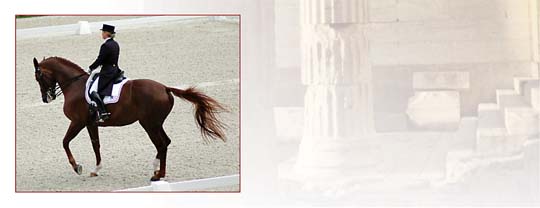
Debbie McDonald
Home: Hailey, Idaho
Born: August 27, 1954
Horse: Brentina —Chestnut, mare, 16.2 h, 11-year-old, Hanoverian
Debbie McDonald had the best finish ever turned in by a U.S. rider and became the first U.S. rider to hold the title of Dressage World Cup Champion when she won the 2003 World Cup Dressage Final in Gothenburg, Sweden. McDonald earned the Championship when she finished with a score of 78.89% in the Grand Prix Freestyle riding Mrs. Peggy C. Thomas’s Brentina. She followed that up in June by helping the U.S. finish second in the team competition at Aachen where she also placed third individually.
McDonald had an impressive year in 2002. At the World Equestrian Games McDonald and Brentina helped the U.S. dressage squad capture the team Silver Medal, marking the best finish ever for a United States dressage team in any World Championship or Olympic Games. Individually, McDonald had this country’s best performance in history by coming in fourth. At the 1999 Pan American Games, McDonald and Brentina won the individual and team Gold Medals, and gave the USET its first double Gold Medalist since 1983. As a result of her stellar efforts, McDonald was honored as the AHSA Equestrian of the Year and USOC Female Equestrian Athlete of the Year. McDonald represented the U.S. at the 1998 World Cup Final in Gothenburg, Sweden.
Robert Dover
Home: Wellington, FL
Born: June 7, 1956
Horse: FBW Kennedy – Chestnut Baden Wurttemberger gelding, 1989
Robert Dover has won more dressage honors than any other American competitor. He is a veteran of five Olympics (1984, 1988, 1992, 1996 and 2000) winning team Bronze Medals in 1992, 1996 and 2000. He was also a World Championship team Bronze Medalist in 1994.
After a brief retirement in 2003, Dover was lured back into the spotlight, when long time owner Jane Clark purchased FBW Kennedy, who had recently competed on the Danish 2002 World Equestrian Team.
Dover had the highest finish ever by an American (fourth) at the 1988 World Cup Final and he is a five-time USET Dressage Champion. In 1994 he was awarded the U.S. Olympic Committee’s Male Equestrian Athlete of the Year award.
In 1992 he was the leading qualifier for the Olympic selection trial on Lectron, whom he’d been riding for just a few months. Dover played a key role in helping the USET win a team Bronze Medal that year at the Olympic Games in Barcelona.
In 1989 Dover led his teammates to the team Gold Medal at the North American Dressage Championship in Quebec, Canada, while capturing the individual Silver Medal. In 1988, he was the highest placed American rider at the Olympic Games in Seoul with Federleicht. He credits his success to the late Colonel Bengt Ljungquist, his trainer for many years.
Guenter Seidel
Home: Del Mar, CA
Born: September 23, 1960]
Horse: Aragon- gray, Bavarian Warmblood gelding
In 2003, two-time Olympic medalist Guenter Seidel won the U.S. Grand Prix Freestyle Dressage Championship/U.S. League Final with an impressive score of 77.650% in the freestyle. Seidel’s win on Nikolaus 7 gave him the right to represent the U.S. at the 2003 Dressage World Cup Final in Gothenburg, Sweden where he finished fourth. The two also were part of the US Team that won the Silver Medal in the Nation’s Cup at CDIO Aachen.
Seidel and Nikolaus 7 were part of the U.S. dressage squad that made history at the 2002 World Equestrian Games in Jerez de la Frontera, Spain, by winning the team Silver Medal. The finish marked the best finish ever for a United States dressage team in any World Championship or Olympic Games.
In 2002, the United States Equestrian Team (USET) honored Seidel with the Whitney Stone Cup, the award for an individual who has achieved a distinguished record in international competition while also serving as an ambassador for the USET and equestrian sports. Seidel, originally from Germany, came to the United States in 1985.
Seidel qualified for the 2000 Sydney Olympic Games by placing second on Foltaire in the State Line Tack/USET Dressage Championship, in Loxahatchee, FL. Despite Foltaire’s bout with colic shortly before the Olympic Games, Seidel and Foltaire gave an impressive performance at the Olympics in Sydney, Australia, to help the U.S. win its third consecutive Olympic team Bronze Medal. Seidel rode Graf George to a team Bronze Medal at the 1996 Atlanta Olympic Games.
Lisa Wilcox
Home: Thousand Oaks, CA & Cloppenburg, Germany
Born: September 8, 1966
Horse: Relevant 7 – Chestnut, Oldenburg stallion, 1991
Lisa Wilcox is based in Germany at Gestut Vorwerk, an Oldenburg stud farm and rides and competes Gudula Vorwerk’s stallions. She is currently training with Ernst Hoyos, a rider for the Spanish Riding School in Vienna, Austria. Wilcox has also trained with four-time Olympic Gold Medalist Nicol Uphoff and U.S team coach Klaus Balkenhol.
In 2003, Wilcox helped the U.S. finish second in the team competition at Aachen where she also placed second individually on Relevant. She successfully placed second in the European Championships with a 77.04% in the Grand Prix.
In 2002, Wilcox and Relevant helped the U.S. dressage squad capture the team Silver Medal, marking the best finish ever for a United States dressage team in any World Championship or Olympic Games. Individually, Wilcox placed fifth with a 72.02%.
In 2001, Wilcox entered the top ten in the FEI rankings based on such accomplishments as winning the Grand Prix Championship with Relevant at CDI*** Zwolle, The Netherlands where she scored a 76.93% in the Grand Prix Freestyle. Wilcox became the first non-European rider to enter the top 10 of the BCM FEI World Dressage Rider Rankings.
Steffen Peters (alternate)
Home: Solana Beach, CA
Born: September 18, 1964
Horse: Floriano – 14 year-old Westphalian gelding
Steffen Peters won a Team Bronze Medal at the 1996 Olympic Games in Atlanta, GA, aboard Udon, and finished 18th in the Grand Prix Special. Earlier that same year, he won the Grand Prix Freestyle at the Los Angeles Mid-Winter CDI-W.
In 2003, Peters and Grandeur were part of the US Team to compete at CDIO Aachen. He helped the Team win a Silver Medal.
He and Grandeur qualified to be among the 12 finalists for the USET’s final selection trials for the 2000 Sydney Olympic Games but had to pull out when Grandeur colicked. Fortunately, Grandeur has come back well. Peters rode Grandeur to the Reserve Championship in the U.S. Freestyle Championship in March, 2002.
It was anticipated that Peters would go to Athens on Grandeur, however, Floriano finished fourth at the trials, ahead of Grandeur, with an impressive 72.340 percent and placed sixth at the open Grand Prix at Aachen.
In 1995, Steffen Peters turned in an impressive performance at the USET Festival of Champions and won the USET Grand Prix Championship. His mount, Udon, was USDF Grand Prix Horse of the Year.
Peters was awarded the CDS Prix St. Georges and Intermediaire Horse of the Year award in 1994. Also in 1994, he won individual and team Gold Medals at the U.S. Olympic Festival.
Born in Germany, Peters has been in the United States since 1985 and became a U.S. citizen in 1992.
Leslie Morse (alternate)
Home: Beverly Hills, CA
Born: November 26, 1961
Horse: Kingston, Dutch Warmblood
In 2003, Leslie won the CDI Grand Prix, Dressage at Los Angeles CDI*** and the CDI Grand Prix Freestyle Dressage at Flintridge. Leslie and Kingston earned Society Open Fourth Level and open Prix St. Georges titles, and have won the ABIC/USDF Region 7 Prix St. Georges Championship. The pair finished fifth at the U.S. Dressage Olympic Trials in California, earning them a spot as alternate on the team.
Who’s Who on the 2004 U.S. Olympic Eventing Team
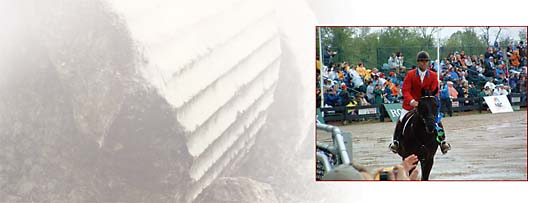
Darren Chiacchia
Born: 9/18/64
Home: Springville, NY
Horse: Windfall 2, Trakehner stallion
Veteran rider Darren Chiacchia and the awesome black stallion Windfall 2 had their best season ever in 2003 when they won the Individual Gold medal in the Pan American Eventing Championship at Fair Hill. The pairing also won the USET Three-Star Spring Championship at the Foxhall Cup CCI*** by finishing as the highest-placed U.S. rider (second behind Australian Olympic Gold medalist Phillip Dutton). Darren and Windfall 2 won the Rolex CIC**** in Lexington, KY, this past April. He rode internationally for the United States in the European Open Championships in Pratoni, Italy, in 1995 and in the Eventing World Championships at the World Equestrian Games in Jerez, Spain, in 2002. Darren has had consistent success over the years with top finishes at the United States’ most prestigious events, the Rolex Kentucky Event, the Fair Hill International and the Foxhall Cup.
Julie Burns Richards
Born: 9/26/70
Home: Newnan, GA
Horse: Jacob Two Two (Canadian Thoroughbred gelding)
Julie began riding at the age of three on her parents’ farm and then started her competitive career at local Pony Club shows where she became interested in three-day eventing. Advancing through the through the ranks, Julie was named to the 2000 Olympic Team and she finished ninth in the Individual competition in Sydney on Hyde Park Corner. The pair continued to compete successfully through 2003, winning the Advanced 1 in Frederick, MD, placing third in the Fair Hill International CCI*** in Maryland, and at the Advanced competition in Hamilton, GA, and fourth in the Kentucky Classic CIC*** in Lexington, KY. She earned her berth on the team by competing in CCI’s at the three-star level in both the U.S. and the U.K. and finished fifth in the Rolex CCI**** Championship at the Rolex Kentucky Three-Day Event in 1999.
Kimberly Severson
Born: 8/22/73
Home: Keene, VA
Horses: Winsome Adante (English Thoroughbred)
In 2002, Kim and Winsome Adante won the prestigious Rolex Kentucky Three-Day Event CCI****, in Lexington, KY. Kim could not defend her title in 2003 as she was recovering from a serious leg injury. Later that year, Winsome Adante underwent emergency surgery, so the pair sat out nearly all of 2003. However, they have made an amazing comeback and again captured the 2004 Rolex Kentucky. Kim earned her first international medal in World Championship competition in September 2002 when she helped the U.S. earn the Team Gold medal at the World Equestrian Games in Jerez, Spain. In 1999, she was also in the winner’s circle in Lexington having won the USET Three-Star Spring Championship. Also in 1999, Kim was second at the Blenheim CCI*** in England. Two years later, in September 2001, she won the Blenheim CCI*** on Winsome Adante.
Amy Tryon
Born: 2/24/70
Home: Redmond, WA
Horses: My Beau (Thoroughbred Gelding)
In 2002, Amy and My Beau helped the U.S. win the Team Gold medal at the Eventing World Championships at the World Equestrian Games in Jerez, Spain. However, the medal came with a price as she had a very serious fall at those games, injuring her back. She made a difficult choice to have risky back surgery and could not work or train for five months; however, Amy has come back strong. Her accomplishments are many on her two horses Poggio II and My Beau. This year, she and My Beau were fourth at the CIC**** Modifed Rolex Kentucky Event in Lexington, won the CIC*** Chatsworth event in Georgia, the Advanced C-1 on My Beau and Advanced C-2 on Poggio II in Raeford, NC.
John Williams
Born: 4/04/65
Home: Middleburg, VA
Horse: Carrick (Thoroughbred cross gelding)
John and Carrick are a seasoned pair in international competition. John earned his first international medal on Carrick in a world championship in September 2002 when he helped the U.S. earn the Team Gold medal at the World Equestrian Games in Jerez, Spain.
They were second in the Rolex Kentucky CCI**** in Lexington in 2002, and third in the Modified Rolex Kentucky in 2004. At age 23, he was just one year out of college when he won the Intermediate CCI National Championship at Radnor in 1988. He has been repeatedly named to the top ten USCTA Rider of the Year list. In addition to being an internationally experienced eventer, John is a recognized USEF “R” Combined Training course designer. John has also designed and built a number of facilities, including the 1995 Pan American Games Selection Trials at Sharpton Stables, FL, and the 1999 Pan Am Games Selection Trial at Great Meadows, VA.
Alternate Riders
Five replacement riders were selected to train in England with the team named on July 16. On August 9, one alternate will be selected to join the team in Athens. Below are the five short-listed horse and rider combinations selected to be replacement riders.
Will Faudree
Born: 10/04/81
Home: Southern Pines, NC
Horse: Antigua (Australian Thoroughbred gelding)
David O’Connor
Born: 1/18/62
Home: The Plains, VA
Horse: Outlawed (New Zealand Thoroughbred gelding)
Jan Thompson
Born: 10/25/67
Home: Purcellville, VA
Horse: Task Force (Thoroughbred gelding)
Amy Tryon
Born: 2/24/70
Home: Duvall, WA
Horse: Poggio II (Thoroughbred gelding)
Heidi White
Born: 6/25/65
Home: Chadds Ford, PA
Horse: Northern Spy (English Thoroughbred gelding)
